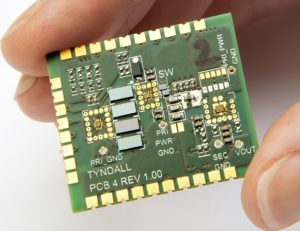Key Info
Duration: 2023-2026
Acronym: RISEnergy
PI Name: Mike Hayes
Topic: INFRASERV 01-01 2023
Title: Research Infrastructure Services for Renewable Energy
Coordinator: KARLSRUHER INSTITUT FUER TECHNOLOGIE
Total Participants: 54
EU Contribution: € 14,499,999

Project Info
The European Green Deal aims to transform the EU into a modern, resource-efficient and competitive economy with zero net greenhouse gas emissions by 2050. To achieve more efficient, competitive and cost-effective energy systems and devices, RISEnergy fosters a European ecosystem of industry, research organisations and funding agencies aimed at developing novel energy technologies and concepts. RISEnergy brings together a consortium of 69 beneficiaries from 23 countries: ERIC institutions, technology institutes, universities and industrial partners, to jointly improve the economic performance of technologies. Members of the European Energy Research Alliance are establishing the core European ecosystem.
The main objectives of RISEnergy are to:
1) Enable research and innovation to increase energy efficiency and reduce the cost of energy technologies in order to foster wider use of renewables in energy systems through: proactive innovation management; providing a single entry point with tailor-made access routes for academics, industry and SMEs; and advising RI providers, access users and policy makers on LCA , ICT development and networking issues;
2) Provide efficient transnational access (TNA) to facilities to support renewable energy technologies and systems as well as to provide more than 2,500 days of access to major European and international world-leading analytical facilities;
3) Reach out to all stakeholders performing research along the value chain, from materials and technology development to applications in the most relevant fields: PV, CSP/STE, hydrogen, biofuels, offshore wind, ocean energy, integrated grids and energy storage, research infrastructure providers and policy makers;
4) Provide comprehensive services of unprecedented quality including new cross-RI services; a single entry point; and tailor-made access routes for academia, industry and SMEs, with a particular focus on scientists from research fields in which the use of research infrastructures is not yet established.
